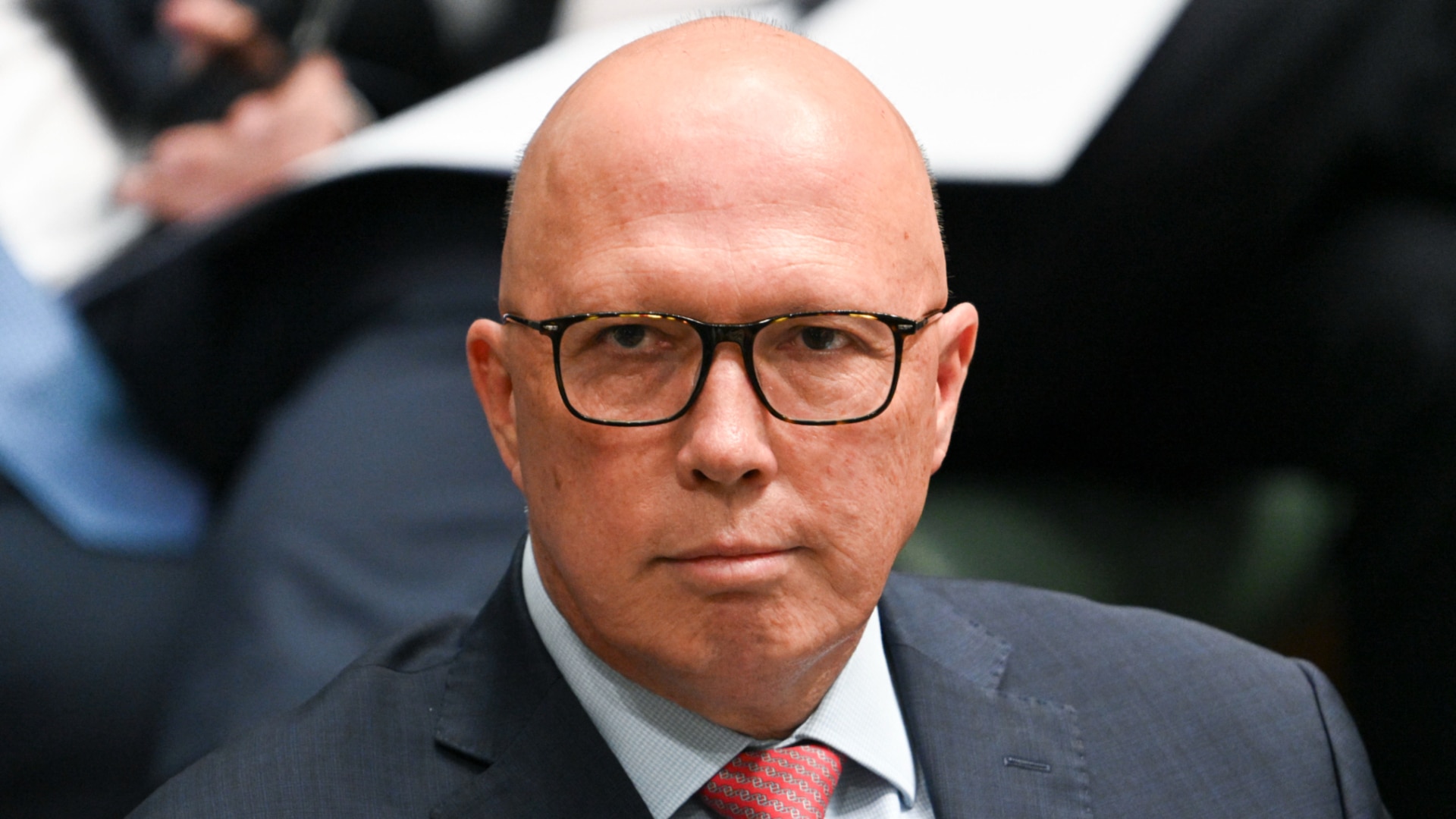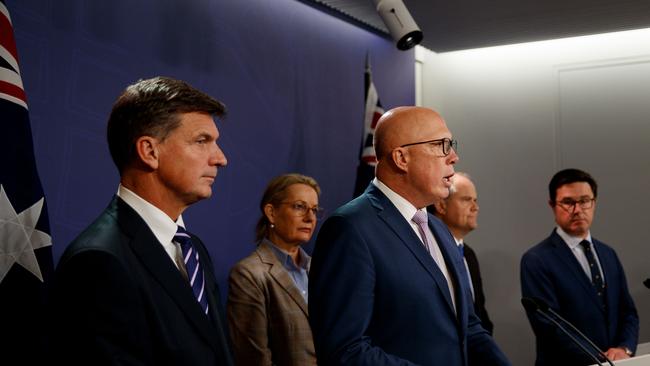‘Divides people unnecessarily’: Peter Dutton would not stand in front of Indigenous flags as prime minister
Peter Dutton has declared he would never address the nation with both the Australian and Indigenous flags behind him at press conferences should he become prime minister.

Peter Dutton has declared he would never address the nation with both the Australian and Indigenous flags behind him at press conferences should he become prime minister, arguing that the practice “divides people unnecessarily”.
The Opposition Leader has been choosing not to have the Aboriginal or Torres Strait Islander flags behind him during public appearances and confirmed on Monday night it was a practice he would seek to continue in top office.
“I’m very strongly of the belief that we are a country united under one flag and if we’re asking people to identify with different flags, no other country does that, and we are dividing our country unnecessarily,” he told Sky News.
“We should have respect for the Indigenous flag and the Torres Strait Islander flag, but they are not our national flags.”
Mr Dutton said Anthony Albanese wanted “to be all things to all people” across a number of issues.
“The fact is that we should stand up for who we are, for our values, what we believe in,” he said. “We are united as a country when we gather under one flag, which is what we should do on Australia Day.”
The Coalition leader controversially called for people to boycott Woolworths this year after the supermarket giant announced it would stop stocking Australia Day merchandise, in a move Labor said was out of touch and not focused on more pressing issues such as cost of living.

The revelation over Mr Dutton’s latest policy comes as opposition Indigenous Australians spokeswoman Jacinta Nampijinpa Price pushes for the rolling back of Welcome to Country ceremonies.
“There are those right around the country, who basically their only role, their only source of income, is delivering Welcome to Country,” she said on Sky News on Sunday.
“This commercialisation of culture, which is exactly what is going on, I can understand there will be those that will be upset if we try to bring it to an end.”
Mr Dutton and Senator Price were key critics of the Indigenous voice to parliament proposal for its lack of detail and practical outcomes for Aboriginal and Torres Strait Islander Australians.
Labor’s policy of enshrining the voice in the Constitution differed from that of the Coalition, which was leaning towards formally recognising Indigenous Australians in the founding document but only legislating the voice mechanism.
The Prime Minister slammed the opposition for its decision to oppose the voice, with the lack of bipartisanship identified as a key reason for the failure of the referendum last year. However, Mr Albanese said he respected the will of the Australian people.
While funding for a body to oversee truth telling and treaty making – also known as the Makarrata Commission – has not been slashed by Labor, the government is yet to clarify its intentions for the idea, which the Uluru Statement from the Heart called to be implemented following a voice to parliament.
Mr Dutton said Australia needed to look at a better recognition of its migrant history when celebrating “our heritage”.
“Our migrant story, the incredible story of people who came here, particularly in the post Second World War period, with nothing,” he said. “They … have worked hard as trainees, as farmers and they’ve educated their children. The next generation has done incredibly well, they’ve done well themselves, we’re a great country today because of that. And we don’t talk anything of that part of our history.”
Mr Dutton defended his plans to slash net oversees migration, originally expected to be cut to 160,000 next financial year, and stressed he had not walked away from the pledge. When pushed on the figure on Sunday, Mr Dutton said “we’ll have a look at the economic settings when we come to government”.
He said there was “no change” in the policy, stating the plan was to reduce net overseas migration to 140,000 in year one, 150,000 in year two and 160,000 after that.




To join the conversation, please log in. Don't have an account? Register
Join the conversation, you are commenting as Logout